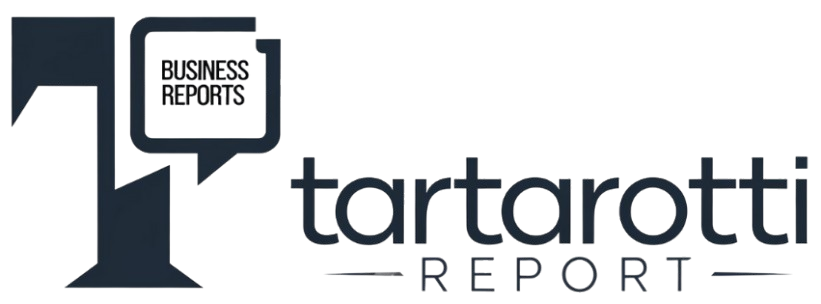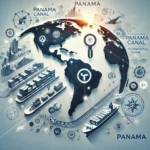Introduction:
In the global wealth management landscape, offshore trusts are emerging as sophisticated instruments for preserving and passing on family wealth. Whether you are a successful entrepreneur, a family wealth heir or a wealth advisor, understanding the power and nuances of offshore trusts is crucial to building and protecting a lasting legacy.
A recent Wealth-X report revealed that the number of ultra-high net worth individuals (over US$30 million) grew by 9.3% in 2021, totaling 295,450 people globally. This remarkable growth in global wealth underlines the growing need for advanced wealth preservation strategies, where offshore trusts play a central role.
In this comprehensive guide, we will explore how offshore trusts can be used strategically to preserve family wealth and build a legacy that transcends generations. Get ready for a journey that will transform your view of international estate planning and family succession.
Part 1: Ready to Roll 🚀 – Basic Strategies and Practical Actions
Part 1, “Ready to Roll”, offers practical actions and immediate advice for entrepreneurs who need quick and effective guidance.

Ready to Roll – Fundamentals of Offshore Trusts for Asset Preservation
- Understanding Offshore Trusts: Before diving into advanced strategies, it is essential to master the fundamentals:
- Definition and Structure: Understand the legal nature of an offshore trust and the roles of the settlor, trustee and beneficiaries.
- Popular Jurisdictions: Familiarize yourself with renowned offshore jurisdictions such as the Cayman Islands, Jersey, Singapore and New Zealand.
- Types of Offshore Trusts: Learn about the differences between discretionary trusts, fixed interest trusts and purpose trusts.
- Key Benefits: Identify the main benefits, including asset protection, succession planning and potential tax efficiency.
- Initial Strategies for Implementing Offshore Trusts: When considering implementing an offshore trust, reflect on:
- Family Goals: Align the structure of the trust with the family’s long-term values and goals.
- Asset Selection: Determine which assets are most appropriate to be transferred to the offshore trust.
- Choice of Trustee: Carefully evaluate between professional trustees, family trustees or a combination of both.
- Governance Structure: Consider including protectors or family advisory committees for additional oversight.
- Practical Implementation of Offshore Trusts: To effectively establish an offshore trust:
- Due Diligence: Carry out a thorough check of the chosen jurisdiction and service providers.
- Robust Documentation: Work with specialized lawyers to create a comprehensive and clear trust deed.
- Initial Compliance: Make sure you comply with all disclosure obligations in your country of residence.
- Funding Strategy: Develop a clear plan for the initial and ongoing transfer of assets to the trust.
Part 2: Deep Dive 🤿 – Technical Deep Dive into Advanced Strategies
Part 2, “Deep Dive”, provides in-depth analysis for those wishing to delve into the technical and complex aspects of international finance.

- Advanced Offshore Trust Structures for Asset Preservation: Explore sophisticated structures to maximize protection and flexibility: a) Dynasty Trusts: Designed to perpetuate family wealth for several generations, minimizing taxes on intergenerational transfers. Example: A Brazilian business family establishes a dynasty trust in the Cayman Islands, structured to maintain control of the company and distribute benefits for up to 150 years. b) Private Trust Companies (PTCs): Offer greater family control over the administration of the trust, ideal for families with substantial and complex assets. Case: An Argentine family creates a PTC in Singapore to act as trustee for multiple family trusts, maintaining strategic control while benefiting from the trust structure. c) Mixed Purpose Trusts: Combine individual beneficiaries with specific philanthropic or business objectives. Application: A Mexican businessman sets up a mixed-purpose trust in Jersey, allocating part of the assets to his descendants and part to maintain a long-term environmental conservation project.
- Technological Integration in Offshore Trust Management: Incorporate advanced technology to improve efficiency and transparency:
- Digital Asset Management Platforms: Use solutions such as FundCount or Asset Vantage for real-time monitoring and sophisticated analysis of trust assets.
- Automated Compliance Tools: Implement systems such as ComplyAdvantage to ensure continuous compliance with global regulations such as CRS and FATCA.
- Digital Governance Solutions: Adopt platforms such as Trusted Family to facilitate secure communication and decision-making between family members, trustees and advisors.
- Blockchain Technology for Asset Tracking: Explore the use of blockchain-based solutions to increase transparency and security in the tracking and transfer of assets within the trust structure.
- Legacy Preservation Strategies through Offshore Trusts: Develop holistic approaches to preserving and passing on the family legacy:
- (a) Business Succession Planning:
- Use offshore trusts to facilitate the smooth transfer of business control between generations.
- Implement structures that separate operational control from economic ownership, allowing flexibility in business management.
b) Preservation of Family Values:
- Incorporate detailed “letters of wishes” into the trust structure, articulating the family’s values and vision for future generations.
- Establish mentoring and financial education programs to prepare heirs for their future responsibilities.
c) Strategic Philanthropy:
- Integrate philanthropic objectives into the structure of the trust, creating a legacy of positive social impact.
- Consider establishing foundations linked to the trust for long-term philanthropic activities.
d) Protection against political and economic risks:
- Diversify the trust’s assets geographically to mitigate country-specific risks.
- Implement “escape” strategies that allow for the rapid reallocation of assets in cases of political or economic instability.
- Challenges and Ethical Considerations: Proactively address the challenges associated with offshore trusts:
- Transparency and Compliance: Develop a robust transparency policy to mitigate reputational and regulatory risks.
- Balance between Control and Protection: Structure the trust to offer asset protection without compromising its legal validity through excessive settlor control.
- Planning for Regulatory Changes: Keep abreast of global regulatory trends and structure the trust with flexibility for future adaptations.
- Ethical Considerations: Align the use of offshore trusts with sound ethical principles, avoiding structures that could be perceived as aggressive tax avoidance.
Conclusion
Offshore trusts represent a powerful and sophisticated tool for families looking to preserve their wealth and build a lasting legacy. When structured and managed properly, they offer a unique balance between asset protection, succession flexibility and tax efficiency.
However, the effective use of offshore trusts requires a careful and ethically grounded approach. As the global regulatory landscape evolves towards greater transparency, the ability to skillfully navigate these structures while maintaining integrity and compliance becomes even more crucial.
Families that adopt a holistic approach – integrating financial planning, family values and social responsibility – will be better placed to create a legacy that truly transcends generations.
To deepen your knowledge on this vital topic, we invite you to take part in our next series of exclusive workshops: “Building Global Legacies: Masterclass in Offshore Trusts and International Estate Planning”. This series will provide practical insights from global experts in law, finance and family governance, offering a unique platform for networking and peer-to-peer learning.
FAQs
- Q: What is the recommended minimum asset value to consider setting up an offshore trust? A: Although there is no legal minimum, due to the costs of establishment and maintenance, offshore trusts are generally more efficient for assets above US$5 million. However, the ideal amount can vary depending on the specific objectives and the complexity of the desired structure.
- Q: How can I ensure that an offshore trust is not seen as an attempt at tax evasion? A: Transparency is crucial. Make sure you comply with all disclosure obligations in your country of residence, keep clear documentation about the legitimate purpose of the trust, and avoid structures that appear artificially complex. Consider obtaining a formal tax opinion from a respected expert.
- Q: What are the potential risks of using a less established offshore jurisdiction for a trust? A: Less established jurisdictions may offer seemingly more favorable laws, but they can also present greater risks, including political instability, frequent regulatory changes, and less international recognition. This can result in compliance challenges and potential reputational problems.
- Q: How can I involve the younger generations of the family in managing and understanding the offshore trust? A: Consider creating a “junior family council” that can participate in some trust decisions, implement personalized financial education programs, and involve young people in philanthropic activities related to the trust. Transparency and regular communication about the trust’s objectives and operations are essential.
- Q: What is the impact of recent global transparency initiatives, such as the CRS (Common Reporting Standard), on offshore trusts? A: The CRS and similar initiatives have significantly increased the reporting requirements for offshore trusts. This doesn’t make trusts less effective, but it does increase the importance of careful and transparent management. Well-structured and managed trusts can still offer significant benefits within this new regulatory environment.

Member of the IMA (Institute of Management Accountants) – USA
Member of the AICPA (American Institute of CPAs) – USA
Member of AAII (American Association of Individual Investors) – USA
Member of AAA (American Accounting Association) – USA
Member of the FMA (Financial Management Association) – USA
These associations not only attest to Kleyton’s commitment to professional excellence, but also ensure that his knowledge is always at the forefront of international financial and accounting practices.
With a robust academic background, including a Bachelor’s degree in Accounting and MBAs in International Finance and Accounting, as well as in International Business, Kleyton offers a unique and comprehensive perspective on the global business landscape.
Through the Tartarotti Report, Kleyton invites visionary entrepreneurs and executives to connect, explore opportunities for collaboration and, together, successfully navigate the complex world of international corporate finance.







